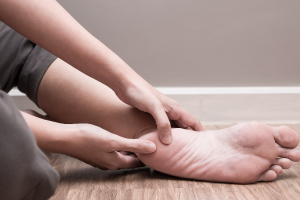

A mouth ulcer on tongue, an injury (accidental biting), or an underlying medical problem are just a few causes of a tongue ulcer. Some causes could require medical attention. A painful tongue, whether on the side, the tip, or the rear, might be difficult to ignore. It may be challenging to speak or swallow. Although a sore tongue frequently goes away on its own, it can occasionally be a sign of a more serious problem, such as a vitamin deficiency, infection, or persistent illness.
Here, we examine some of the most typical mouth ulcer causes and why medical attention is necessary.
What is a Tongue Ulcer?
Mouth or tongue ulcer can develop anywhere inside your mouth. They are also known as Aphthous ulcers. You may have one, a few, or all of these sores, which are typically red, yellow, or white. Mouth ulcers can develop on your:
- Gums
- Tongue
- Palate (roof of the mouth)
- Cheeks’ inside
- Lips within
These sores might make you uncomfortable when you try to speak, eat, and drink because they are frequently painful. Ulcers in the mouth can be scary. They are not, however, a sexually transmitted illness (STI), and they cannot be acquired or spread by kissing or sharing food or beverages. They typically cause little pain or discomfort and healing mouth ulcer does not require hectic treatments as they disappear on their own in a week or two. However, some forms of mouth sores may indicate underlying medical illnesses.
What Do These Ulcers Say About Your Health?
There can be various mouth ulcer reasons, indicating major issues in your body that must be checked upon. Some of them are:
1. Trauma or Injury
If you see a mouth ulcer under tongue, it might be due to trauma/injury to the tongue that can result from dental procedures, eating something hot or sharp, accidentally biting it, grinding one’s teeth, and more.
2. Transient Lingual Papillitis
The white red bumps that appear on the tongue are known as Transient lingual papillitis. These are the inflamed taste buds and their cause is unknown – stress and hormonal changes might be common factors. It can cause soreness in the mouth.
3. Candidiasis
A form of yeast or fungus infection of the mouth or throat is called Candidiasis. Pain, discomfort, redness, a cotton-like sensation in the tongue, a loss of taste, and white patches that resemble cottage cheese are possible side effects.
4. Other Infections
Human papillomavirus also known as HPV, Syphilis, and Scarlet fever, are some other infections that you might be dealing with if you are experiencing tongue ulcer in your mouth.
5. Food Allergy
Mouth ulcer symptoms also include exposure to any food that you are allergic to. Some of the foods that cause mouth ulcers are as follows:
- Citrus fruits
- Spicy foods
- Tomatoes
- Nuts and seeds
- Pineapple
Treating Tongue Ulcer
Several home remedies can be equipped as a cure for mouth ulcers. However, depending on the conditions and nature of your sores, mouth ulcers treatment at home might not work. Even though the majority of tongue ulcer heal on their own, your doctor may recommend drugs to help with discomfort. Typical remedies for mouth sores include:
- Mouthwashes
- Antiseptic gels
- Triamcinolone-containing steroid lotions
- Immunosuppressants
How to Prevent Tongue Ulcer?
Additionally to the home mouth ulcer remedy for treating the signs and symptoms of mouth sores, you can follow the mentioned steps for hygiene to prevent them in the future:
- Drink a lot of water.
- Maintain a healthy dental hygiene routine to keep your mouth as pristine as possible.
- Rinse your mouth with warm saltwater at least two times a day.
- Rinse your mouth twice a day with a solution that contains an equal amount of hydrogen peroxide and water.
- Use a topical anesthetic sold over-the-counter.
Tongue ulcer typically heal on their own in 10 to 14 days. Make an appointment with your doctor if the sore in your mouth persists for more than three weeks.
Conclusion
By taking complete care of your oral hygiene by brushing twice a day and flossing, you can prevent your tongue from getting an infected mouth ulcer. However, if your mouth sores last longer than three weeks or more or new ulcers are starting to appear as the old ones heal, then you should consider booking your visit to a dentist to get a thorough check-up.




